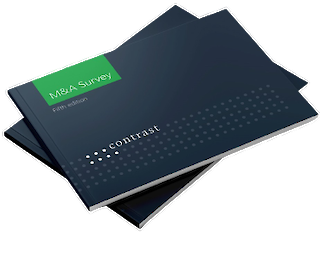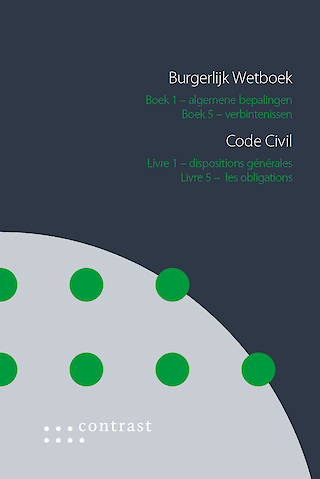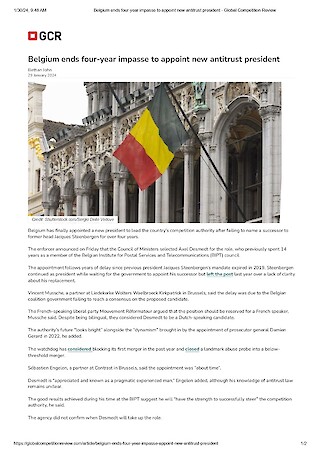In the Picture

Time´s up: obligatory amendment of articles of association for Belgian companies
September 2023Imagine…
You are the CFO of a multinational with a successful Belgian subsidiary that has built up substantial financial reserves. You would like to use those reserves for a different purpose within the group and so you wish to carry out a significant distribution.
You ask your colleagues from Legal to do whatever is necessary, but they inform you that such a distribution isn´t possible just like that. For tax reasons (US “check-the-box” rule) it was decided to set up the Belgian subsidiary in the form of a BVBA/SPRL (a private limited liability company). However, the Belgian company law has recently undergone some fundamental changes, and this company has now been transformed into a BV/SRL (as new private limited liability company). This legal form is now subject to a very flexible regime and no longer has any capital requirements, which is very helpful for the contemplated distribution. But, in order to be able to make use of the new regime, it will be necessary to first amend the articles of association. Moreover, an amendment of the articles of association still has to be done this year in any case so as to be in compliance with the new Belgian company law.
A brief clarification.
The new Belgian Code of Companies and Associations has been in effect since 1 May 2019.
The code thoroughly modernises the Belgian company and association law. It reduces the number of company forms to just four basic legal forms: the “maatschap”/“société simple” (the partnership), the NV/SA (the public limited liability company), the BV/SRL (the private limited liability company) and the CV/SC (the cooperative limited liability company). The BVBA/SPRL has been transformed into the BV/SRL, which no longer has any capital and minimum capital requirement.
The new rules offer many new possibilities. They give much more freedom to companies and their shareholders to organise their company in accordance with their own needs. For example, there is also great liberty to custom-tailor the voting and profit rights associated with the shares.
The new code applied immediately to all companies that were set up after 1 May 2019. Companies that already existed at that date must fully adapt their articles of association to the new code by 1 January 2024. Companies that have adopted an abolished legal form are thereby required to convert to one of the retained basic legal forms. An amendment of the articles of association is necessary in any case, including for the companies whose legal form remains available, if only to adapt itself technically and terminologically to the new rules and to eliminate any inconsistencies with the new code.
Meanwhile, these existing companies are subject to a transitional arrangement. The code’s mandatory provisions have been applicable to the latter since 1 January 2020. The same goes for the non-mandatory provisions, to the extent they do not conflict with the articles of association. Existing private limited liability companies (BVBAs/SPRLs), such as in our example, were furthermore transformed, by operation of the law, on 1 January 2020 into capital-free companies. The fully paid-up capital (and the legal reserve) were thereby transformed by operation of the law into an equity account that is unavailable under the articles of association. If these companies wish to make this amount available for distribution, they first have to amend their articles of association and thereby bring them fully into accordance with the new code.
The deadline for the adaptation, 1 January 2024, is rapidly approaching. Despite this, it appears from the most recent figures that only a minority (slightly more than 37%) of the existing companies have already adapted their articles of association.
A company that fails to do what is necessary by 1 January 2024 may face unpleasant consequences. Indeed, companies whose legal form is abolished effective 1 January 2024 are automatically converted into the legally-prescribed legal form. Such an automatic conversion can entail that existing arrangements (whether under contract or the articles of association) are no longer fully applicable, which can have undesired and unanticipated consequences, e.g. in the area of decision-making or transfers of shares. In addition, late adaptation can give rise to joint and several liability on the part of the directors for any harm that might derive from this.
Concretely.
- On 1 January 2024 all existing Belgian companies (companies that already existed on 1 May 2019) must have adapted their articles of association to the new Belgian Code of Companies and Associations.
- Existing private limited liability companies (BVBAs/SPRLs) were transformed by operation of the law on 1 January 2020 into capital-free companies. If they wish to make their former capital (and legal reserve) available for distribution, they must amend their articles of association and also immediately bring them into accordance with the new code.
- On 1 January 2024 companies whose legal form has been abolished and which have not transformed themselves before the deadline will be automatically converted into the legally-prescribed legal form.
- Late adaptation can give rise to joint and several liability on the part of the directors for any harm that might derive from this.
Want to know more?
- You can find the text of the Code of Companies and Associations here, or buy our convenient codex.
- You can find the transitional provisions relating to the introduction of the Code of Companies and Associations here.
- You can find the results of the Enterprise Barometer survey concerning the number of already implemented amendments of the articles of association here.
- You can find our "In a Nutshell" newsletters on the Code of Companies and Associations here.
Please consult our website or contact one of our team members if you have questions or require more information:












